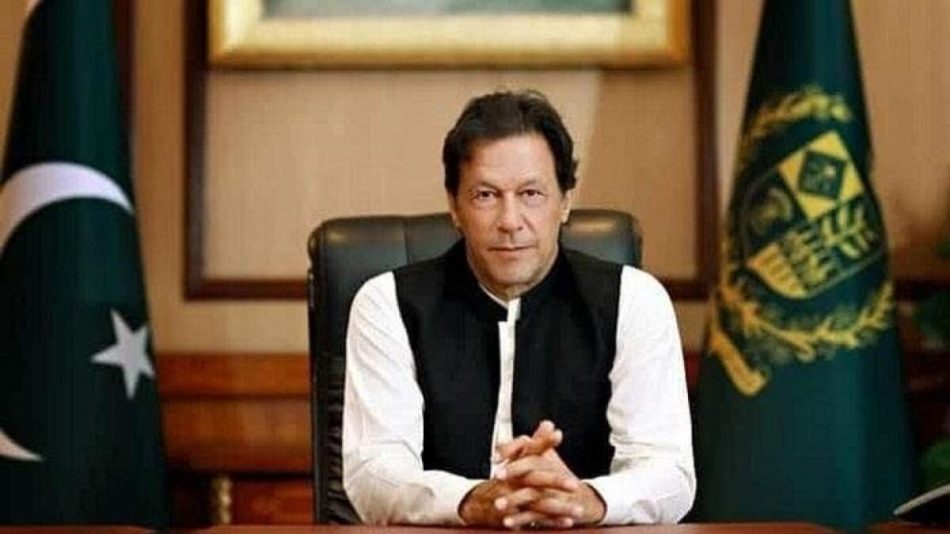Pakistan is currently experiencing a major political and constitutional crisis. On 3 April, the deputy speaker of the National Assembly threw out a no-confidence motion against Prime Minister Imran Khan, which was projected to receive a majority of votes. The rationale given was the alleged presence of a foreign conspiracy to topple the elected government, of which the no-confidence motion was considered part.
Significantly, Pakistan’s political environment has shifted dramatically in recent months, with the two biggest opposition parties, the PML-N and the PPP, uniting against the government. It is, without a doubt, the most significant political challenge that the present government has faced in its more than half-term. In addition, the government faces a greater challenge from within its party. No Pakistani prime minister has ever served a full term, and Khan has faced the most serious challenge to his leadership since taking office in 2018.
Khan’s removal is being sought through a no-trust motion filed by opposition parties in the National Assembly. The Pakistan Muslim League-N (PML-N) and the Pakistan People’s Party (PPP) led the opposition, two traditionally feuding dynastic factions that dominated national politics for decades until Khan allied against them.
However, the plotted no-trust resolution against Pakistan Prime Minister was dismissed by Deputy Speaker Qasim Suri, and it was against Pakistan’s Constitution and laws. Therefore, the plot to destabilize the government has failed. The legislature has been dissolved, and elections will occur in 90 days.
Khan is accused of mismanaging Pakistan’s economic and foreign policies. Whereas, in his address to the nation, Khan categorically said that he would not resign and resist foreign meddling, rejecting his opponents’ accusations of misrule. He also stressed that he would emerge victoriously. He will not, under any circumstances, allow this conspiracy to succeed.
Whereas few observers believe it is anything more than a planned effort on the part of the prime minister to bolster the assumption of a foreign conspiracy against his government. Moreover, playing the nationalist card in times of crisis is a common populist strategy.
However, in Pakistan’s political history, no elected government has ever been toppled by a no-confidence vote. Pakistani Prime Minister Imran Khan has rejected calls from the opposition to resign, accusing the US of attempting to destabilize his government.
The US was accused of interfering in Pakistani affairs. The opposition parties were plotting with Washington to remove the government because Pakistan refused to support the US and Europe in global conflicts with Russia and China.
Khan cited the United States as the source of a “memo” that Khan claimed confirmed a “foreign conspiracy” sparked by his travel to Russia when President Vladimir Putin launched the special military operation in Ukraine. Foreign elements claimed to be enraged with Pakistan. If Pakistani Prime Minister Imran Khan loses a no-confidence vote, they will forgive Pakistan. However, if the referendum fails, Pakistan will suffer major consequences. The alleged conspiracy was intended to punish him for pursuing a Pakistani foreign policy independent of the United States.
Analysts also predict that the development will aggravate Pakistan’s already tense relationship with the United States. The developments will harm the US-Pakistan relationship. Relations haven’t been great in recent months; they’ve been unsure and uneasy but not disastrous. The disclosures, rhetoric, and accusations pushed into the public sphere in recent days will put things back.
While on the other side, it’s neither a fight between “good and evil“, as Prime Minister Imran Khan would have us think, nor a fight for democracy, as the combined opposition insists. The Prime Minister has used religious and nationalist slogans to rally his supporters and tackle the situation. He has attempted to rally his supporters by using religious slogans and portraying the power fight as a battle between “good and evil”.
Notably, PM Khan maintains that his life is in danger, but he is unconcerned and vows to fight for an independent and democratic Pakistan. Attempts are being made to change Pakistan’s government using foreign funds. While analysts believe Khan is attempting to sway public opinion against the opposition by blaming the West. It was a first-of-its-kind assault on democracy and the constitution by a democratically elected government. If the acting speaker’s actions are upheld, any future administration will be free to deploy a made-up conspiracy to avoid a vote of no-confidence. They have subverted the country’s rule of law. As a result, Pakistan’s democracy has suffered a setback (DW, 2022).
Since the United States withdrew from Afghanistan last summer, the relationship between the two countries has been strained. The growing rapprochement between China and Pakistan also puts a pall over US policies toward the country.
The opposition’s no-confidence movement against Prime Minister Imran Khan was defeated, which might have major consequences for Pakistan’s democratic system. The no-confidence motion’s defeat and the dismissal of parliament have cast doubt on Pakistan’s entire constitution. On the other hand, Khan’s supporters and advisers are confident that their leader will not only survive the current constitutional crisis but will also win a majority in the next parliament.
*The writer is a researcher and analyst.
April 11, 2022
The viewpoints expressed by the authors do not necessarily reflect the opinions, viewpoints and editorial policies of Aequitas Review.


